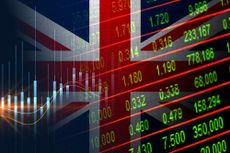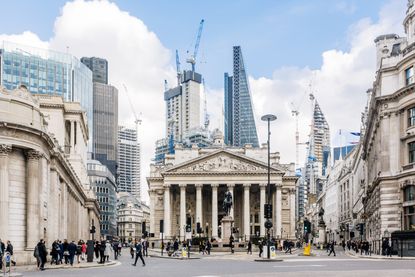UK Economy
News, updates and features on the state of the UK economy. Live reporting and analysis on GDP, inflation, Budgets and the latest from the Bank of England as well as comprehensive reports and expert analysis on what it all means for your money.
Explore UK Economy
-

The scourge of youth unemployment in Britain
Youth unemployment in Britain is the worst it’s been for more than a decade. Something dramatic seems to have changed in the labour markets. What is it?
By Simon Wilson Published
-

Reach for the stars to boost Britain's space industry
opinion We can’t afford to neglect Britain's space industry. Unfortunately, the government is taking completely the wrong approach, says Matthew Lynn
By Matthew Lynn Published
opinion -

CPI vs RPI inflation: what is the difference between ONS measures?
The Office for National Statistics calculates CPI, RPI and CPIH each month. What are they and what do they reveal about UK inflation?
By Sam Walker Last updated
-

What is inflation and how does it affect you?
The latest inflation figures are released each month. What is inflation and how does it impact your personal finances?
By Daniel Hilton Last updated
-

UK inflation forecast: where are prices heading next?
UK inflation fell sharply in January. Is price growth expected to fall further in 2026, and when will inflation go back to the 2% target?
By Daniel Hilton Last updated
-

UK inflation: What are the Consumer Price Index release dates?
The UK’s inflation reports are published monthly. When do they come out and where are prices heading?
By Daniel Hilton Last updated
-

ONS: UK economy grew by ‘lacklustre’ 0.1% in final quarter of 2025
The construction sector performed its worst in more than four years in the final quarter of 2025, the latest Office for National Statistics (ONS) GDP figures show
By Sam Walker Last updated
-

Will UK interest rates fall in 2026? Latest Bank of England predictions
The Bank of England held interest rates at 3.75% in their February meeting. Will interest rates stay at this level, or will they fall further this year?
By Daniel Hilton Last updated
-

When is the next Bank of England base rate meeting?
The Bank of England held interest rates at 3.75% in February 2026. When is the next Monetary Policy Committee meeting and will interest rates fall further this year?
By Daniel Hilton Last updated
